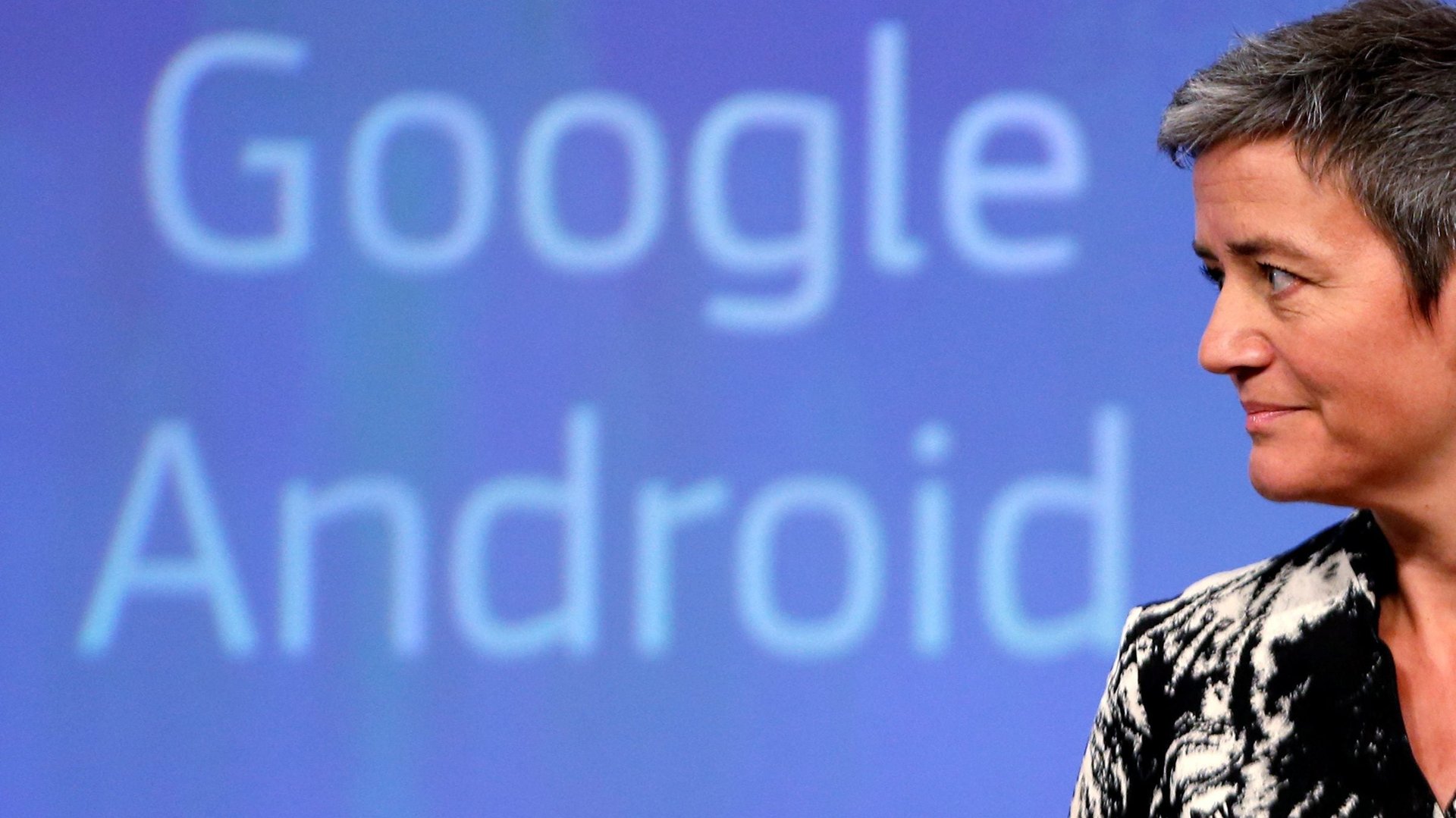These are the EU’s reported plans to break up Google’s monopoly powers
The European Commission has three outstanding antitrust charges against Google. They are far from settled, but documents leaked to Reuters Oct. 1 provide some clarity on how the European Union’s executive arm plans to deal with Google’s alleged abuse of dominance.


The European Commission has three outstanding antitrust charges against Google. They are far from settled, but documents leaked to Reuters Oct. 1 provide some clarity on how the European Union’s executive arm plans to deal with Google’s alleged abuse of dominance.
According to the leaked documents, the commission plans to impose a heavy fine on the search giant at a level “which will be sufficient to ensure deterrence.” Google could be fined a maximum of 10% of its annual global revenue, or as much as $7.5 billion based on its 2015 revenue. The EU’s biggest fine for abuse of a dominant position was levied on Intel in 2009 at $1.44 billion. The biggest antitrust fine ever levied by the EU stands at $3.23 billion and was imposed on Daimler, Volvo, MAN, and others in July for participating in a cartel that was fixing prices.
Here’s a quick recap of the EU’s cases against Google:
- April 2015—Shopping: Google is accused of favoring its own comparison-shopping service in its search results. This set of charges was reinforced in July 2016 after Google had a chance to reply.
- April 2016—Android: The EU says Google is manipulating handset-makers and telcos by requiring them to agree to exclusive deals to pre-install key Google apps. The company also is accused of paying telcos and handset-makers to pre-install Google Search, and preventing the sale of handsets using non-Google flavors of Android.
- July 2016—AdSense: Google is accused of preventing publishers who use AdSense from displaying ads from other advertising platforms.
The Reuters documents refer to the Android and shopping cases. The documents are called Statements of Objections, which are lists of charges levied by the commission, and they were sent last week to companies that had complained about Google so that the commission could received feedback. Google received these charge sheets when the investigations were made public, on the dates listed above. The commission declined to comment on the Reuters story.
The Android charge sheet shows that the commission proposed stopping Google from paying mobile operators and handset makers in return for pre-installing Google Search and Google Play, the official channel for Android users to obtain new apps. Additionally, the commission wants to stop Google’s “anti-fragmentation” agreements, which prevent handset-makers from using non-Google versions of the Android mobile operating system if they want to pre-install the commercially important Google Play on their machines. Google also will not be allowed to “punish or threaten” companies who don’t follow its rules.
The charge sheet for comparison-shopping was heavily redacted by Google, a process that the commission allows to prevent confidential information from being seen by complainants. The commission intends to ask Google to rank search results from Google Shopping the same way it treats results from competing services, the document said. The commission said it would rule in the future on whether Google could ask competing services to pay for more prominent placement.
The charge sheets aren’t the commission’s definitive plans. Based on Google’s defense, which can include requesting a hearing with an independent arbiter—as Qualcomm, facing a fine of up to $2.5 billion is doing—the EC could modify or drop charges. The next step is for the commission to create a draft decision, which will set out concrete actions it wants Google to take, and the size of a fine, if any. After that, Google could still appeal, as Intel is doing.
In other words, there’s a long road ahead in the battle between Google and the EU.